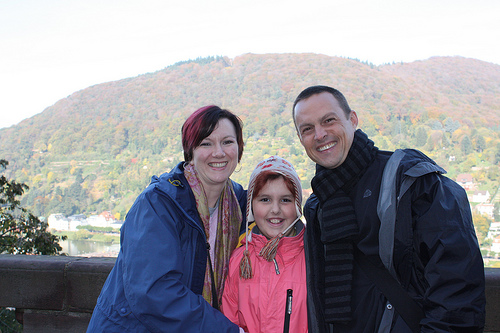
The following post is taken from my upcoming book: Connected: The Art of Building Relationships. Connected is the updated edition of Relationships for the Intimately Challenged.
A grandiose ego is a common defense mechanism used to mask fear. When someone is insecure and has a fundamental fear around people, an easy way to keep others at arm’s length is to give the illusion of confidence through ego. For example, someone who is talented may not feel grateful for his ability or feel good about himself just because he is able to perform certain tasks well. He only responds to the adulation of others; and when he doesn’t receive this needed praise, he becomes louder and angrier in order to gain attention.
How many prima donna professional athletes and entertainers fit this description? The sad reality is that these individuals are never able to fully appreciate or celebrate their talents in a meaningful way because they never allow themselves to completely share their gifts with others. They exist with a constant pressure to perform. Therefore, everything they do is motivated by fear. Fear that if they somehow lose their ability, people will no longer love them. Fear that people are only there because of something (usually money) they can provide.
This phenomenon is not limited to athletes and entertainers. We see these characteristics in people in all walks of life. Show me a tyrannical father at home, and I will show you a scared insecure man who only feels whole when he controls others. Employers who micro-manage also suffer from the same insecurity and fear of people. It is expressed by forcing others to believe they are inferior and cannot adequately do their job without the constant supervision of the boss. Finally, parents who force their children to perform for them or other adults live in a perpetual state of fear. These children are perceived as extensions of the parents and must earn the parents’ praise.
Another way we manifest fear is through guilt. We look at past actions (because of either embarrassment or retribution from others) and attempt to protect ourselves. Even though the intention is to keep himself safe, the person who holds on to guilt only accomplishes isolation. Although this person may convince himself that people stay around him because he is loved, deep inside he believes the only reason people are still around is because of a flawed sense of loyalty or pity.
The guilty person is extremely manipulative. She is constantly trying to be helpful, but the people being “helped” only become resentful. The guilty person convinces herself she is “needed” so she will never be alone. Unfortunately, she may never feel a true sense of connection to others.
Ultimately, any of these manifestations of fear, anger, superiority, grandiosity, and guilt lead to the core belief: a fear of being alone. When people try to side step these issues, they stop themselves from dealing with what is ultimately the problem. We as human beings are social creatures. So much of what we do is motivated by a need to feel a sense of community and connection.
We all want to be loved and understood.
Many of us have spent much of our lives being slaves to our scripting and fears and therefore don’t know where to begin to feel fulfilled emotionally. When we are able to recognize the ways that we are “intimately challenged” we start down the path of finding some solutions. Those that stay in denial of their fears remain stuck in isolation.
As we are able to clearly see the difference between our definitions of success, happiness, intimacy, and relationships as opposed to those definitions that are simply conditioned reactions, we are able to take more responsibility for our lives. As we take more responsibility for our lives, our relationships become closer.






 This is a very significant week for me. While on family vacation, I am celebrating the anniversary of entering drug and alcohol recovery twenty-three years ago. Although much time has passed, the gratitude I feel today is far more significant than in the past.
This is a very significant week for me. While on family vacation, I am celebrating the anniversary of entering drug and alcohol recovery twenty-three years ago. Although much time has passed, the gratitude I feel today is far more significant than in the past.

